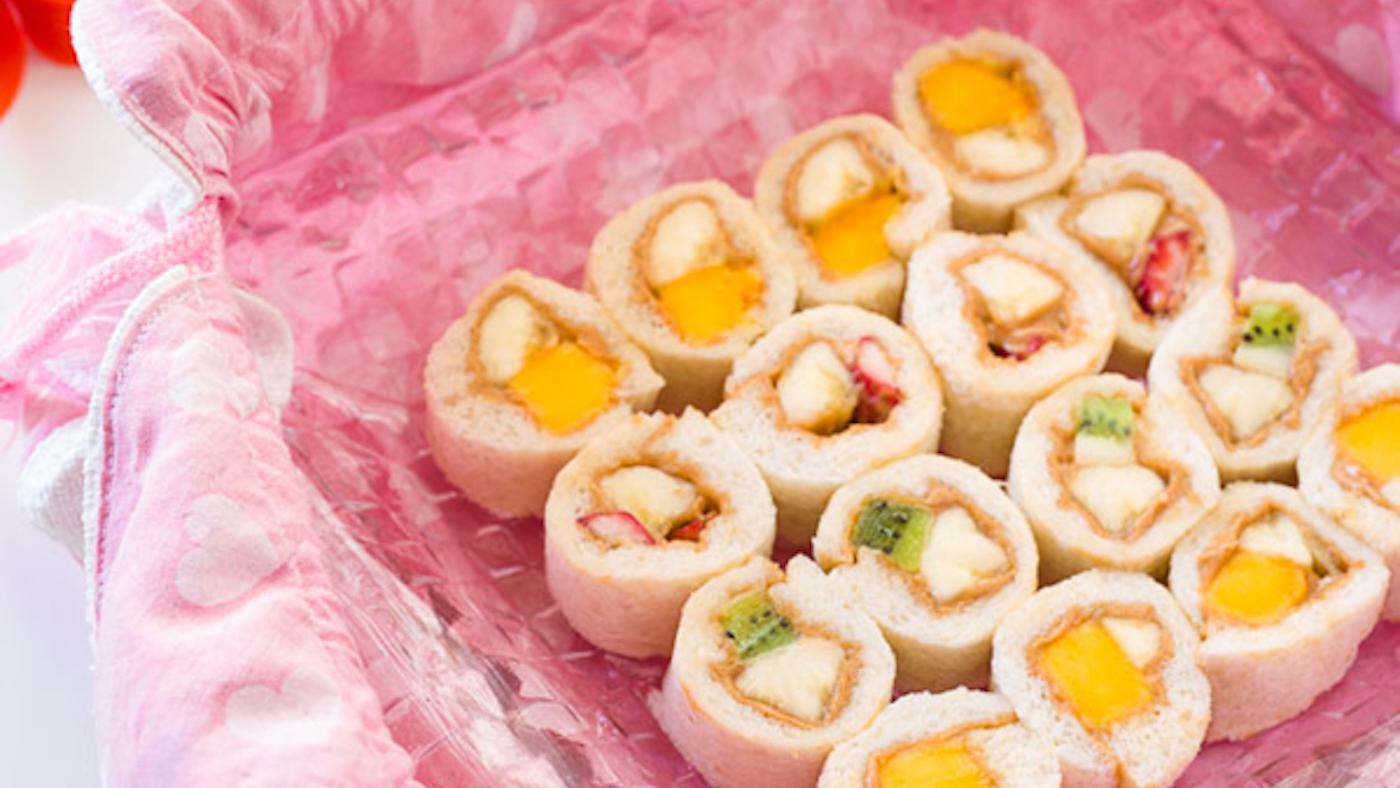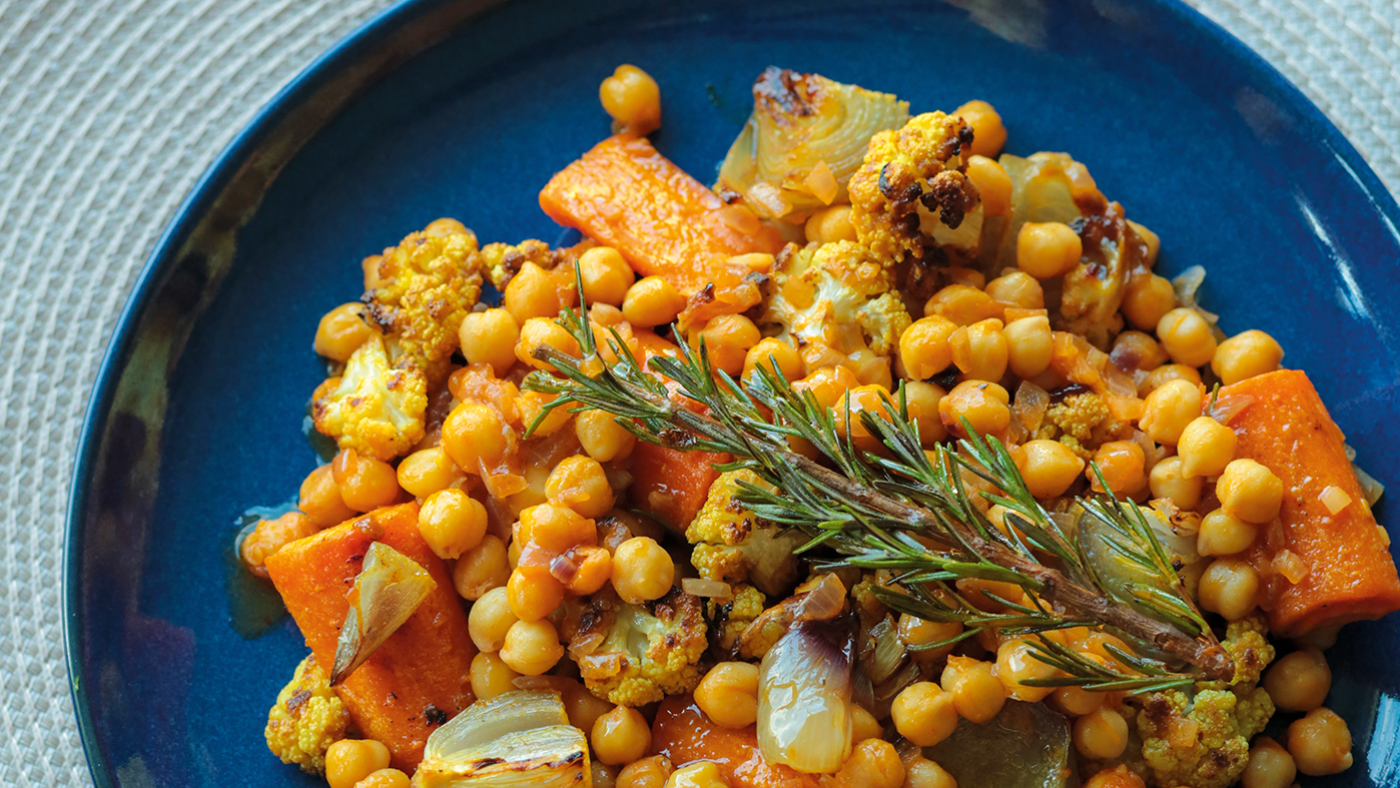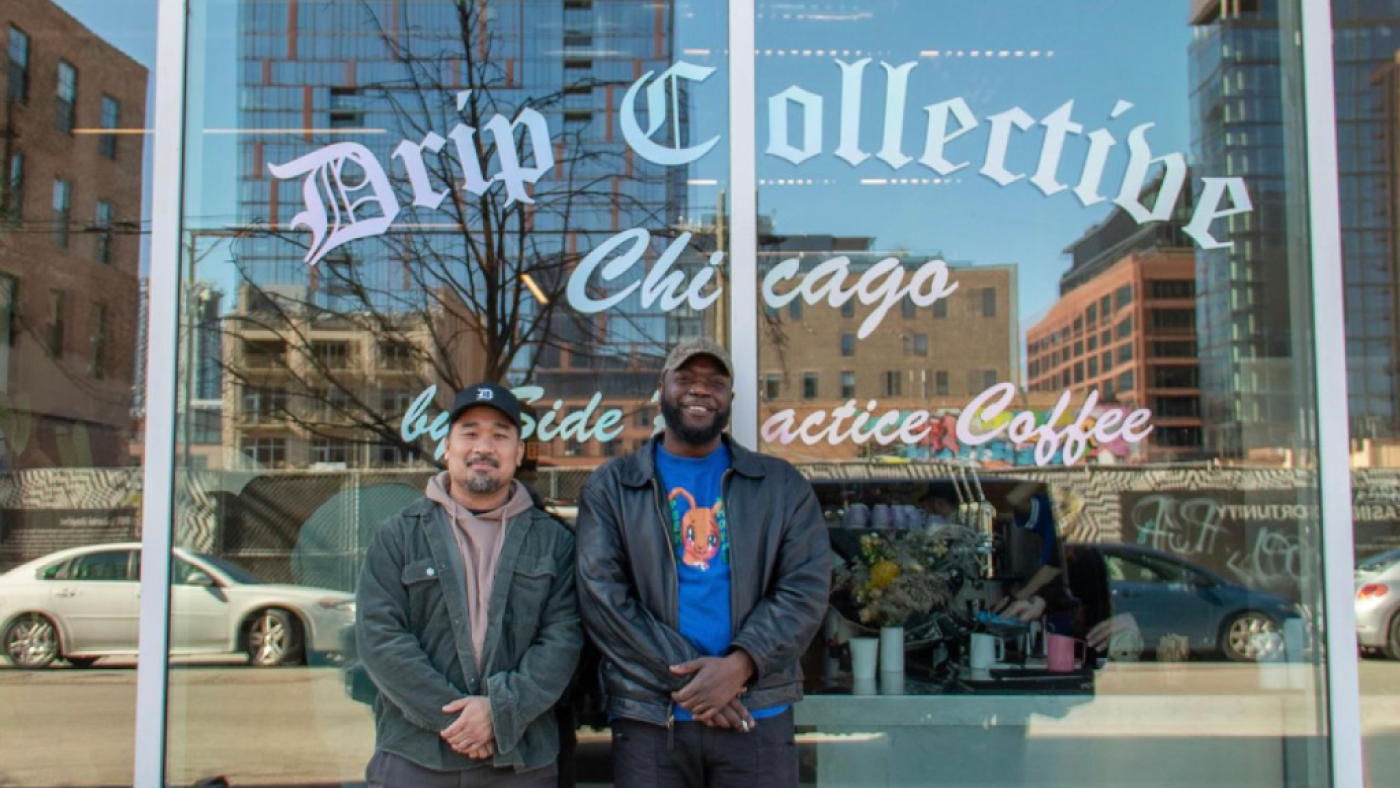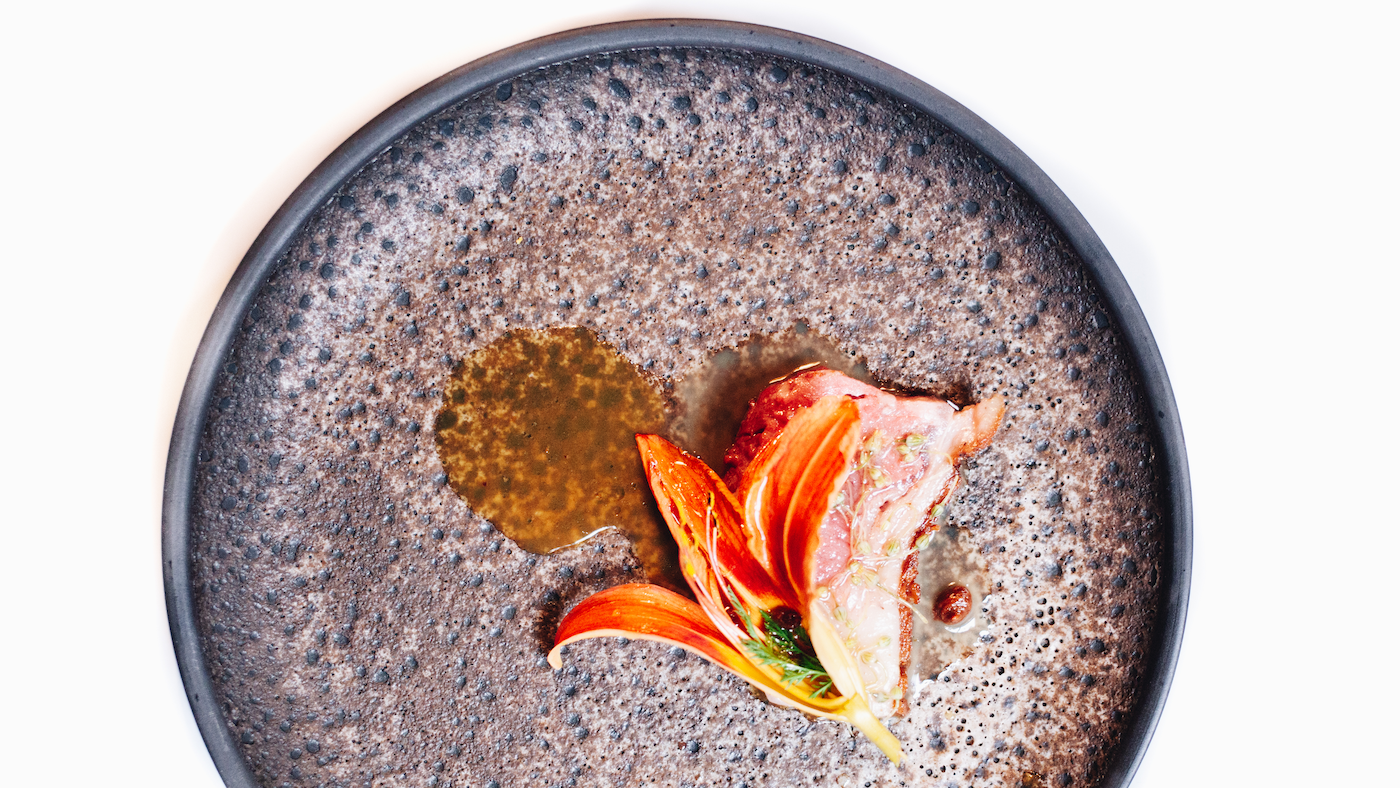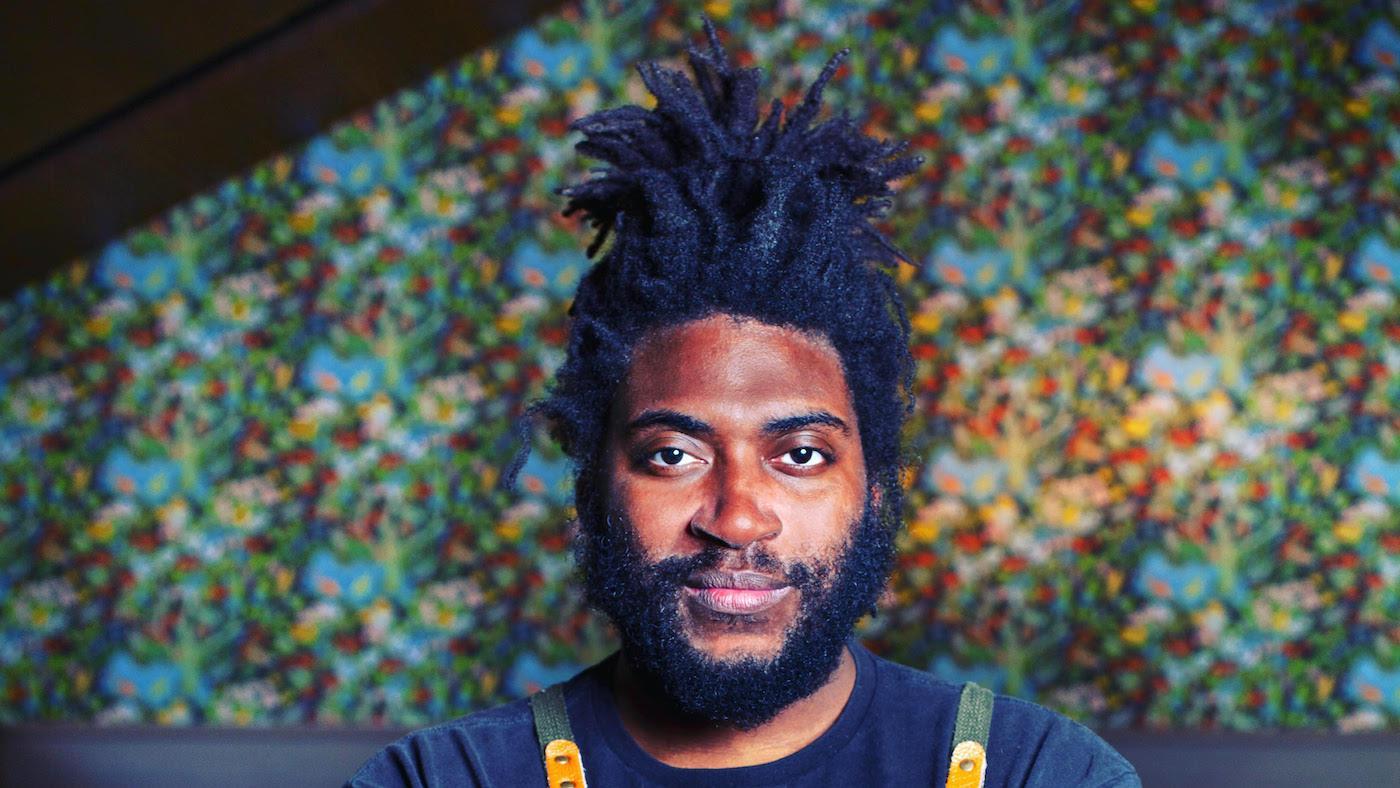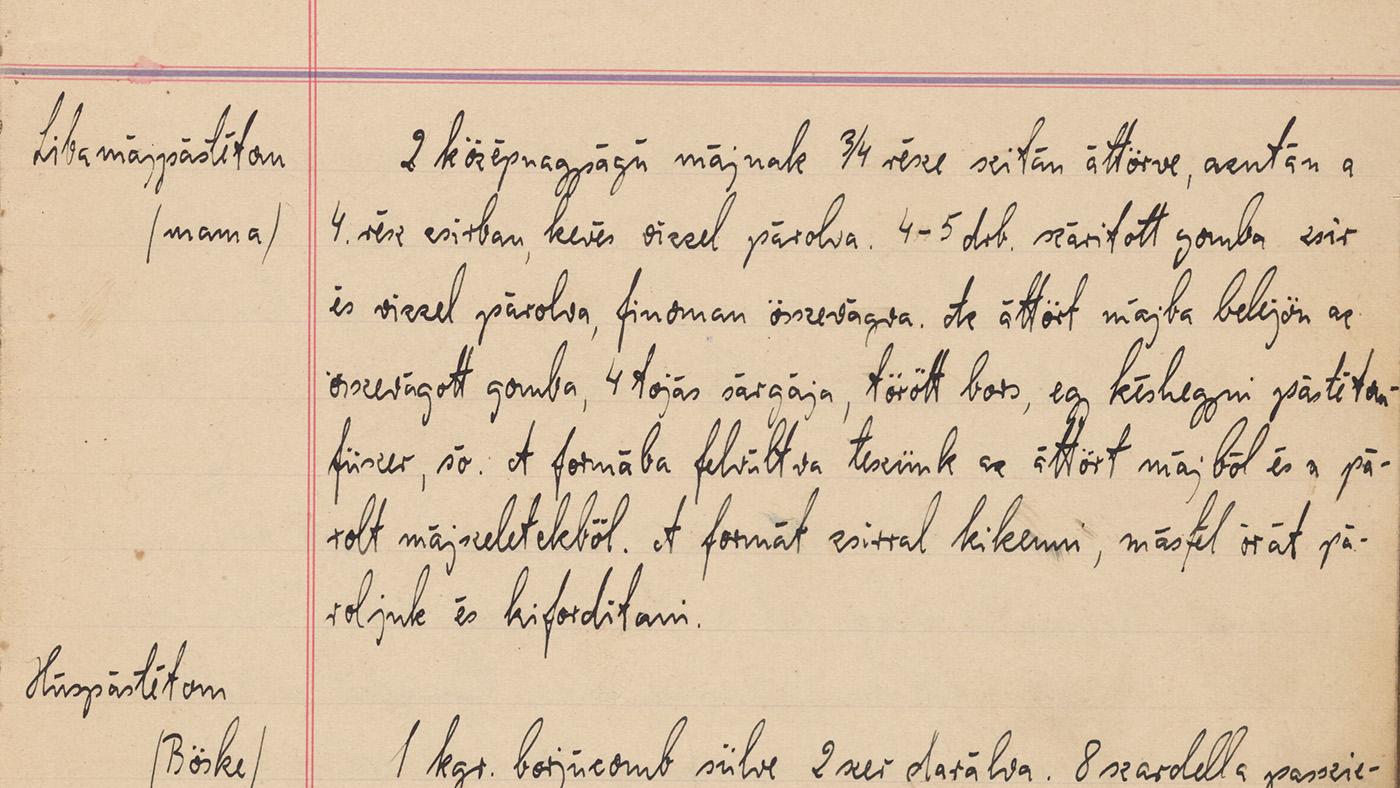Palestinian-American Cookbook Author Shares Her Story—And A Recipe for Bulgur Stuffed Peppers
Meredith Francis
October 11, 2022
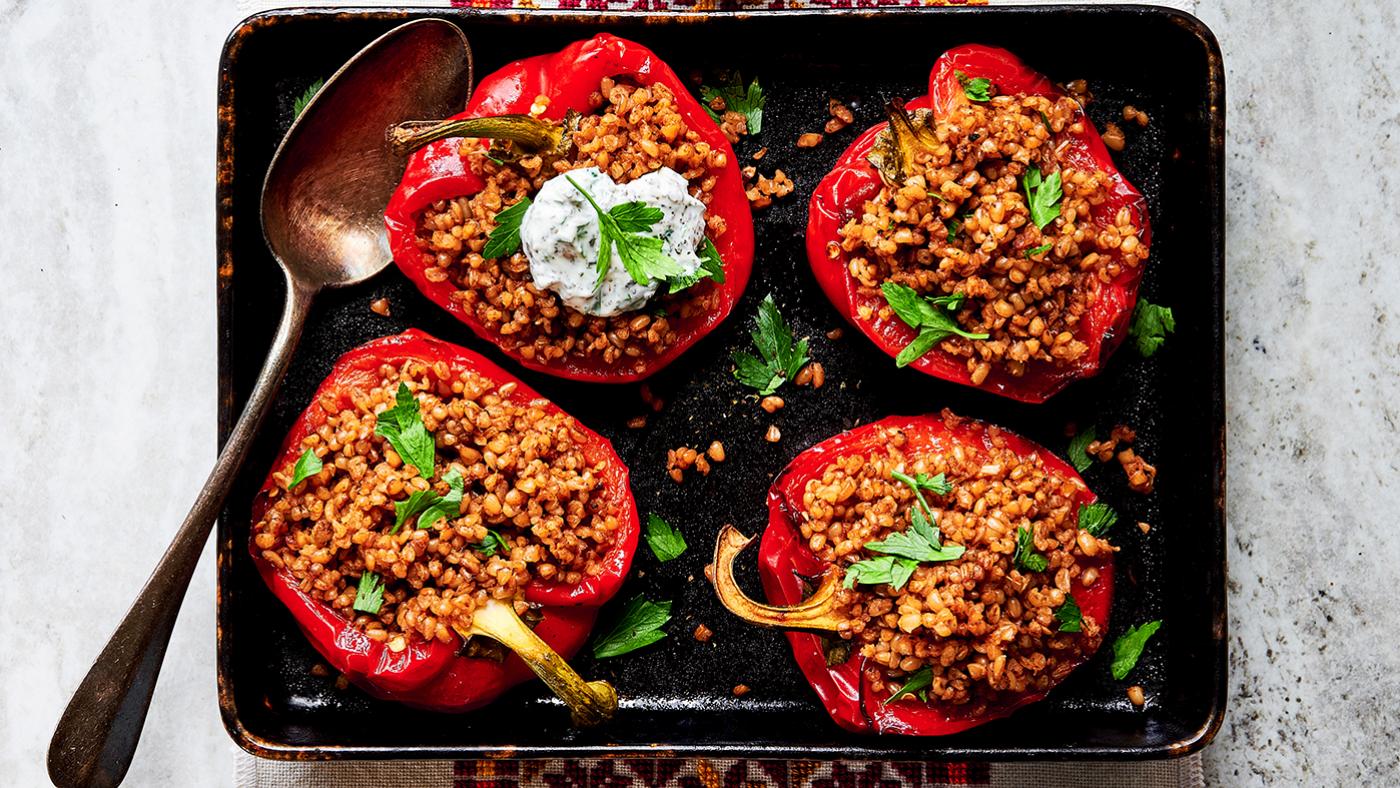
Get more recipes and food news by signing up for our Deep Dish newsletter.
When Heifa Odeh moved to Chicago a few years ago after marrying her husband, Ahmad, she didn’t know anyone in the city.
“I had to start anew,” Odeh says. “The one thing I always loved to do is cook and bake and be in the kitchen. That’s my happy place, my therapy.”
Her husband encouraged her to document her recipes in the form of a blog, and Fufu’s Kitchen was born. Her husband helped her build the website; the title comes from her nickname. Now, her recipes are also documented in a new cookbook, Dine in Palestine.
Odeh grew up in New Jersey, the daughter of two Palestinian parents. Food was a big part of her upbringing.
“I can recall being as young as 12, and I always watched the Food Network. I did not watch Nickelodeon and Cartoon Network,” Odeh says, “I literally would have it on for hours. The whole family would watch with me.”
Odeh says both of her parents were great cooks. Her dad is known for his qalayet bandura, which Odeh describes as a flavorful tomato garlic skillet, the recipe for which is included in her cookbook. She says her mother was also an amazing cook and baker—one with the kind of talent where people always wanted to come over for dinner and then grab seconds.
“I was always intrigued by her in the kitchen. She lived in the kitchen, basically, just like I do now,” Odeh says. Now, people are coming over to Odeh’s kitchen in search of seconds.
The first job she had at age 15 was in a local bakery. She eventually worked as a cake decorator out of that bakery. As much as she loves cooking, Odeh might love baking even more.
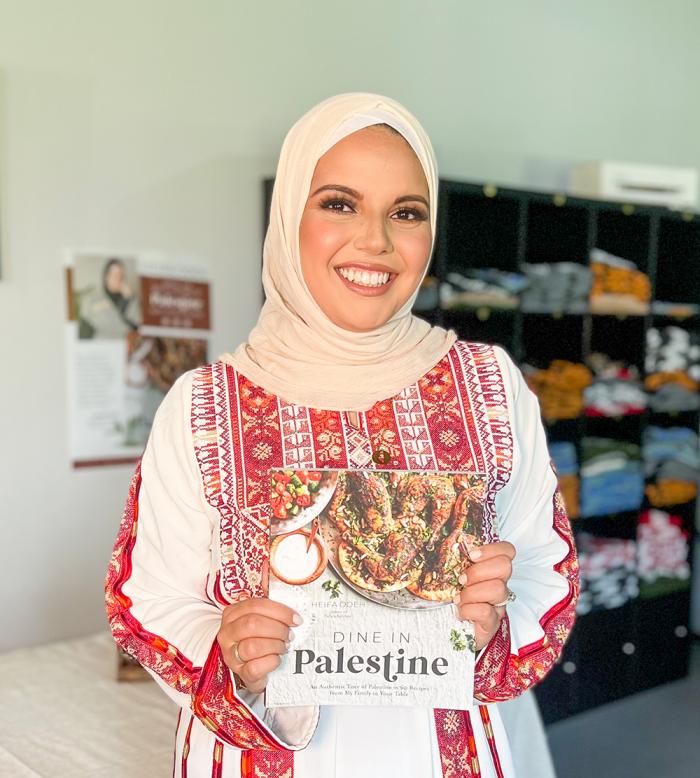 Odeh says she has loved cooking and baking since childhood. Image: Provided
Odeh says she has loved cooking and baking since childhood. Image: Provided
“I love them both. But to me, baking is even more therapeutic, and I feel like it's more artistic. Baking is a little bit more difficult. So I think I like that challenge,” she says.
One of her favorite things to bake is fatayer, which are savory Middle Eastern pies. She also likes to get crafty with her baked goods and other recipes.
“As an American, I've always loved brownies,” she says. “But hey, I'm going to add some pomegranate molasses and tahini paste to them and make them really delicious with a little Palestinian flavor.”
While many of the recipes in her cookbook are traditional ones that have been passed down over generations, many, like her brownie recipe, reflect her Palestinian-American identity and feature creative flavor combinations.
When she was approached about writing a cookbook, she said it was important to her that her identity be front and center.
“I would really like a book that one hundred percent that represents me as a Palestinian-American,” Odeh says. “It was very important for me that the cover, the title, included the word ‘Palestine.’ I could count maybe on one hand how many cookbooks have ‘Palestine’ on the cover.”
For Odeh, Palestinian cuisine is about the simplicity.
“The flavors are huge, but it’s so simple. It doesn’t take much, and a lot of [Palestinians] don’t have much. So they really make something amazing with the resources they have around them,” she says.
Below, Odeh shares one of her favorite vegetarian recipes from her cookbook, for flafleh mahshi bil burghol—stuffed peppers with bulgur and herb yogurt. She says the recipe is flexible: it can be its own meal, or a side to a protein such as pan-seared chicken.
“I feel like every region has some sort of stuffed peppers,” Odeh says. “[This recipe] is not really a Palestinian thing per se, but Palestinians stuff all kinds of things. We are notorious for stuffing grape leaves, stuffing zucchini, stuffing eggplant, stuffing onions, stuffing carrots! So this was one of my ways of being creative.”
Odeh is a former high school English teacher, so the cookbook felt like a natural next step for her. Being a food blogger and cookbook author has some similarities to teaching, she says. The trick is to make the learning approachable, even if people have never eaten or made Palestinian food.
“I used almost the same approach that I did as a teacher to high school students learning English that I do with the cooking and baking—teaching people how to feel more comfortable and confident in the kitchen,” Odeh says. “I really think if you follow the way I present my recipes, they're very approachable.”
Flafleh Mahshi bil Burghol
Stuffed Peppers With Bulgur & Herb Yogurt
In Palestinian cuisine, bulgur can often be found as a substitute for rice. Bulgur, which is a wheat, actually contains more health benefits than rice, as it is high in fiber and other nutrients. Often, my mom would make a side of bulgur to go with mashawi (Arabic grilled meats). I have also used bulgur in salad, as it just takes on flavors so beautifully. In this recipe, the bulgur is flavored with tomato and pomegranate molasses, then used to stuff peppers, and then gets topped with a complementary yogurt sauce to tie it all together. It makes for such a wonderful vegetarian meal.
Servings: 3
Ingredients:
3 small red bell peppers, halved lengthwise and deseeded
2 tbsp (30 ml) olive oil, divided
Salt and pepper, to preference
1 yellow onion, finely chopped
6 cloves garlic, minced
1 cup (140 g) bulgur, coarse
2 cups (480 ml) vegetable stock
1/2 tsp seven spice
1 vegetable bouillon cube, crushed
1 tbsp (16 g) tomato paste
1/2 tsp pomegranate molasses
Herb Yogurt
1 cup (240 ml) plain yogurt
Handful chopped parsley
1/2 tbsp (3 g) dried mint
1/2 lemon, juiced
Salt, to preference
1 clove garlic, minced
Directions
1. Preheat the oven to 375°F (191°C). Prepare the bell peppers by coating them thoroughly in 1 tablespoon (15 ml) of olive oil. Season them with salt and pepper. Add them to an oiled baking pan and bake for 40 minutes, flipping them once halfway into baking.
2. Mix the yogurt together with the chopped parsley, dried mint, lemon juice, salt and garlic, and then cover and refrigerate.
3. In a pot, add 1 tablespoon (15 ml) of olive oil along with the onion and garlic. Season with salt and pepper, and then let everything cook down for a few minutes until the mixture is fragrant and lightly caramelized.
4. To this, add the bulgur, vegetable stock, seven spice, bouillon cube and tomato paste. Stir and let this cook together covered for 15 minutes, until all the liquid has been absorbed. Drizzle in the pomegranate molasses and fluff the bulgur.
5. At this point, the peppers should be cooked. Fill each pepper with the bulgur and enjoy with a side or topping of the herb yogurt!
Credit: Reprinted with permission from Dine in Palestine by Heifa Odeh. Page Street Publishing Co. 2022. Photo credit: Doaa Elkady.

